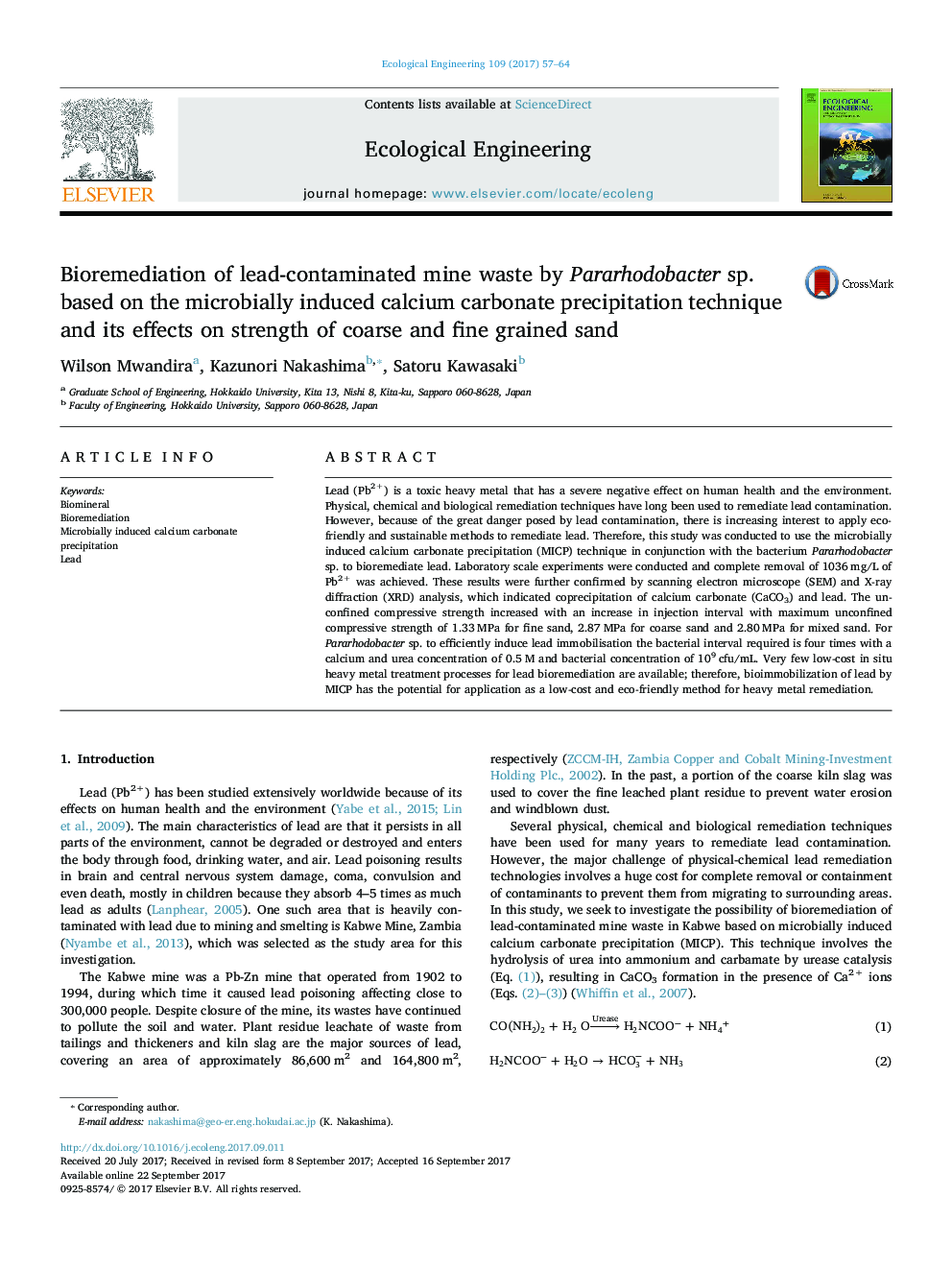| کد مقاله | کد نشریه | سال انتشار | مقاله انگلیسی | نسخه تمام متن |
|---|---|---|---|---|
| 5743644 | 1412317 | 2017 | 8 صفحه PDF | دانلود رایگان |

Lead (Pb2+) is a toxic heavy metal that has a severe negative effect on human health and the environment. Physical, chemical and biological remediation techniques have long been used to remediate lead contamination. However, because of the great danger posed by lead contamination, there is increasing interest to apply eco-friendly and sustainable methods to remediate lead. Therefore, this study was conducted to use the microbially induced calcium carbonate precipitation (MICP) technique in conjunction with the bacterium Pararhodobacter sp. to bioremediate lead. Laboratory scale experiments were conducted and complete removal of 1036Â mg/L of Pb2+ was achieved. These results were further confirmed by scanning electron microscope (SEM) and X-ray diffraction (XRD) analysis, which indicated coprecipitation of calcium carbonate (CaCO3) and lead. The unconfined compressive strength increased with an increase in injection interval with maximum unconfined compressive strength of 1.33Â MPa for fine sand, 2.87Â MPa for coarse sand and 2.80Â MPa for mixed sand. For Pararhodobacter sp. to efficiently induce lead immobilisation the bacterial interval required is four times with a calcium and urea concentration of 0.5Â M and bacterial concentration of 109Â cfu/mL. Very few low-cost in situ heavy metal treatment processes for lead bioremediation are available; therefore, bioimmobilization of lead by MICP has the potential for application as a low-cost and eco-friendly method for heavy metal remediation.
Journal: Ecological Engineering - Volume 109, Part A, December 2017, Pages 57-64